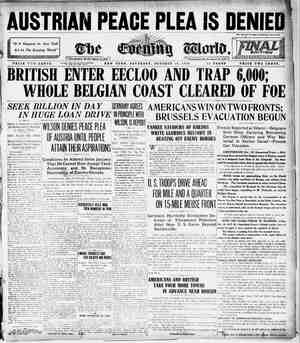New Britain Herald Newspaper, October 19, 1918, Page 8
You have reached the hourly page view limit. Unlock higher limit to our entire archive!
Subscribers enjoy higher page view limit, downloads, and exclusive features.
8 NEW BRITAIN DAILY HERALD, SATURDAY, OUCIUBER 19, 1918 | That Guiltiest F eehng: ' WWHED You'veE i~ A Bie SNEEze TiMMEe AND You HAVE To BECN FoR A HoLDING LONG LET T GO JusT AS YOUR OPPONENT S ABouT To PUTT, ALSO THE INFLUENZA SUSPICION s AROUSED 1 "’ SNl TSR\ N N "', ’ ¥, » / ey Wee < be. . | Come o7 - Lety i SR e A = 7/,, Lot %{g\»mw ity T, irfm,,,,v





